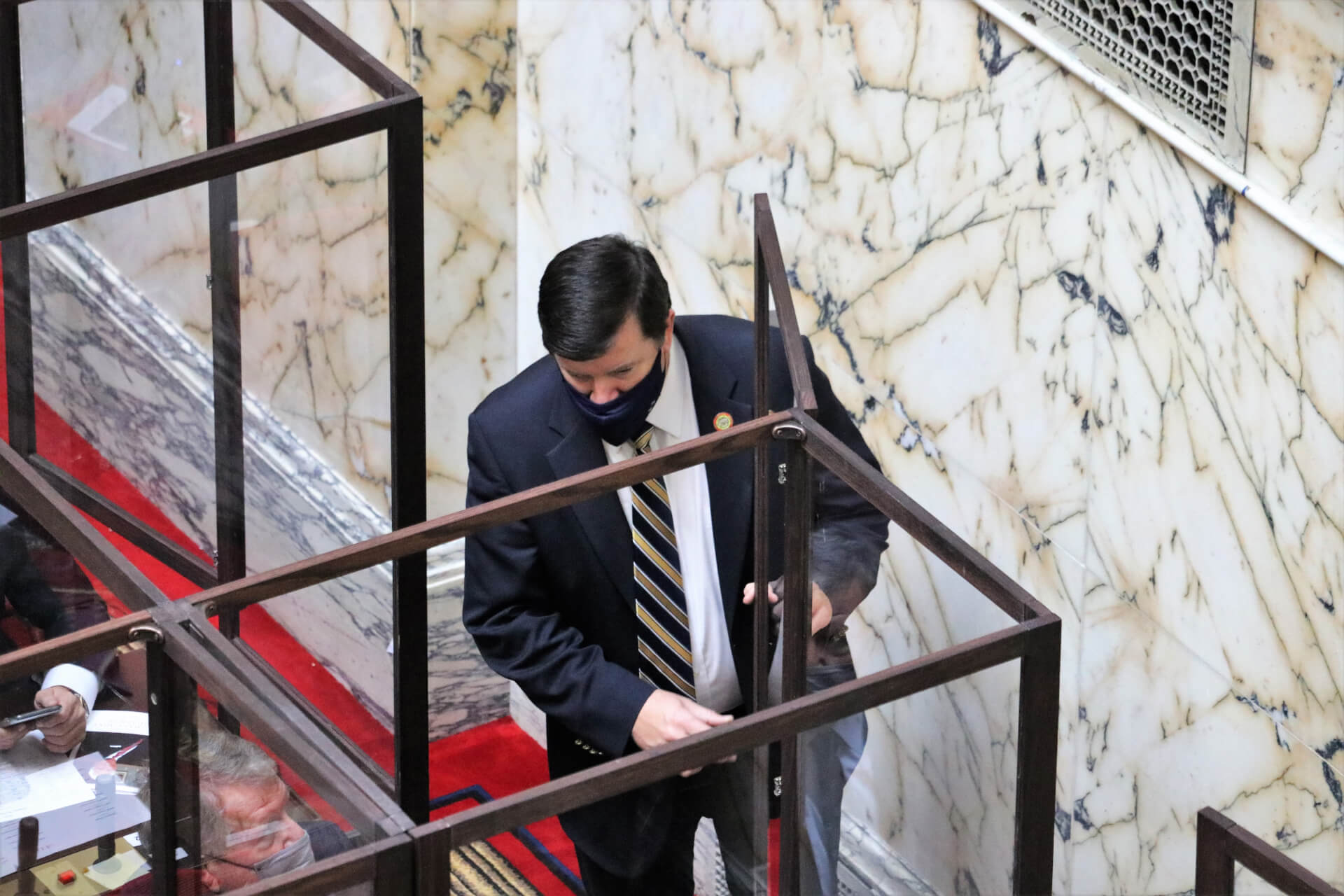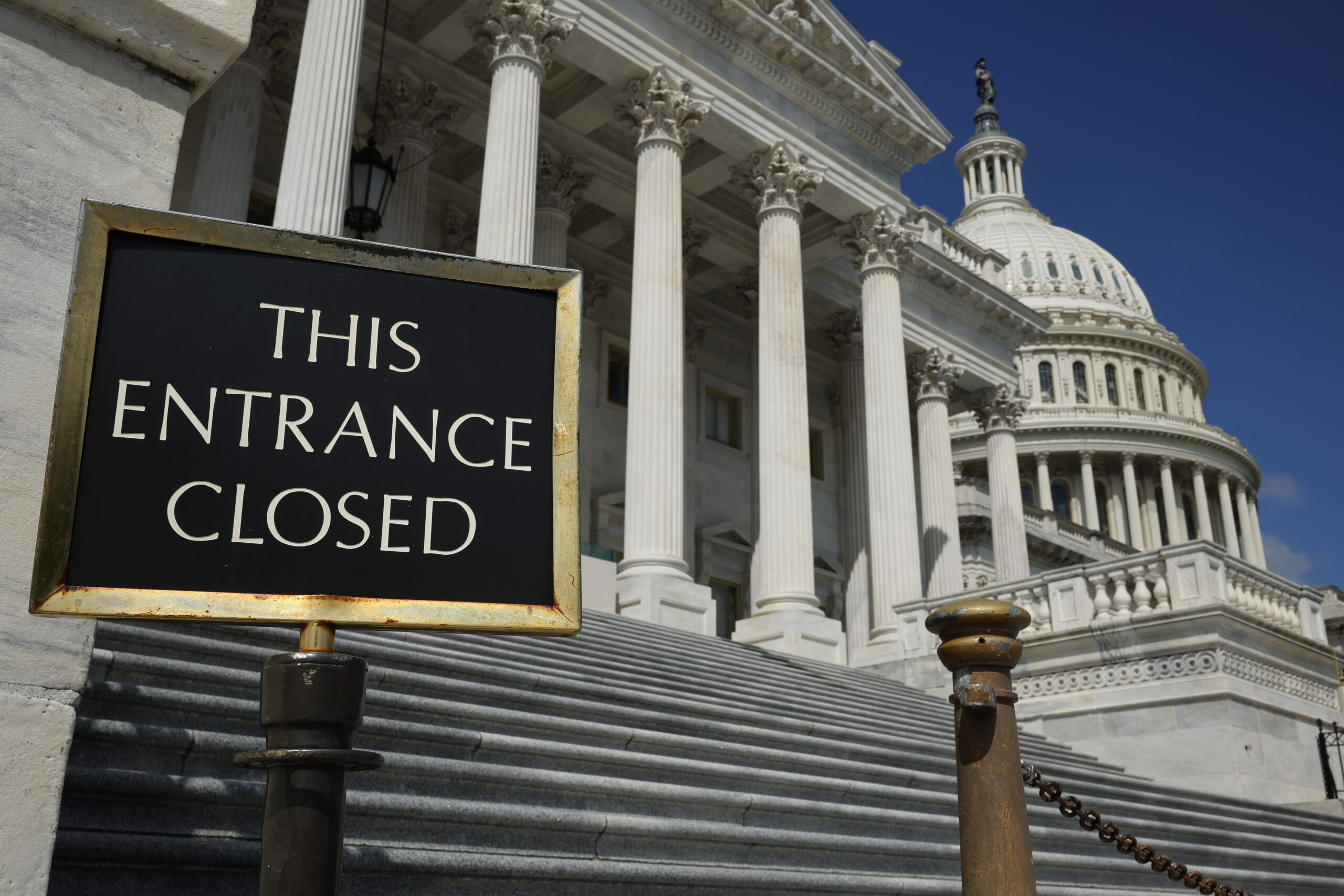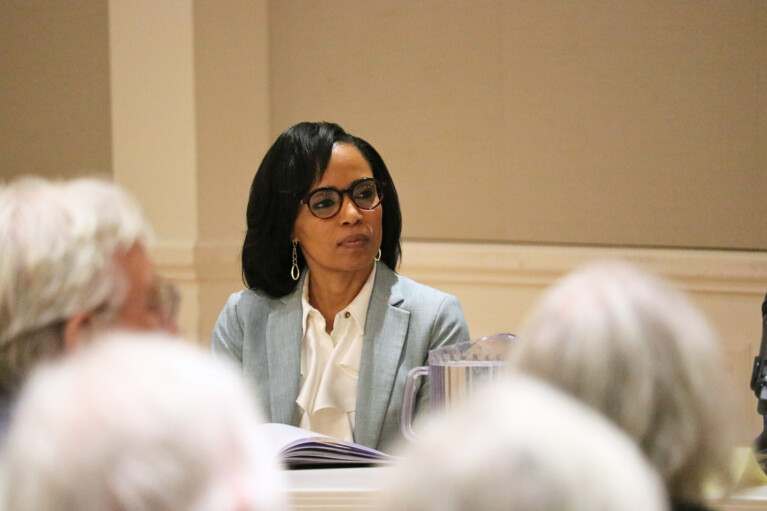Bills on Digital Tax, Guns at Polling Places Move to Final Senate Votes

A proposal that would clarify exemptions to Maryland’s new tax on digital advertising moved forward in the Senate on Thursday.
This emergency bill from Senate President Bill Ferguson (D-Baltimore City) would prohibit big tech companies from passing their digital ad taxes on to Maryland small businesses, a major criticism of the first-in-the-nation digital ad tax that the General Assembly passed last month.
It also clarifies that broadcasters and news media would be exempt from paying the tax.
“The intent of the original bill that this is amending was to take the handful of big tech companies that are not paying their fair share in Maryland, and bring them into the social contract in Maryland so they pay their fair share,” Sen. James C. Rosapepe (D-Prince George’s) said on the Senate floor Thursday.
The measure is “a belt and suspenders approach” to maintain that intent and protect Maryland small businesses, Sen. Sarah K. Elfreth (D-Anne Arundel) echoed.
However, Sen. Brian J. Feldman (D-Montgomery) questioned the lack of sanctions and enforcement measures in the proposal, in the event that big tech companies ignore it.
Rosapepe said it was presumed that entities would obey the law, as the question of big tech companies potentially violating this proposal did not come up during hearings and discussions. “We may need to come back in the future and fix that,” he conceded.
To ensure that taxes don’t get “baked in” to small businesses, Senate Minority Leader Bryan W. Simonaire (R-Anne Arundel) proposed an amendment that would not allow big companies to “indirectly” or “by any other means” pass taxes along to consumers or small businesses.
“Under the current language in here, there is no guarantee that small businesses will not eat this cost,” Simonaire said. The original proposal prohibits large companies from passing down their tax “through a separate fee, surcharge or line-item.”
But Democrats said that altering the language might undermine its legality and jeopardize Maryland businesses.
“The committee worked in consultation with the attorney general and to adopt this amendment might put the bill in a posture where it is no longer implementable and no longer legal,” said Sen. Melony G. Griffith (D-Prince George’s).
A legal advice letter sent to Ferguson from Sandra Benson Brantley, counsel to the General Assembly, in February concluded that the bill “is legally sufficient and constitutional,” citing a Supreme Court opinion upholding an Alabama law meant to prohibit a severance tax on oil producers from being passed along to their purchasers.
Simonaire’s amendment failed 16-31 and Ferguson’s bill moved ahead on a preliminary vote.
Debating guns at polling places
The state Senate also gave preliminary approval Thursday to a bill that would prevent people from carrying a gun in or near a polling place in Maryland.
But lawmakers spent over half an hour debating whether certain exceptions should be made for law enforcement officers.
Senate Bill 10, introduced by Sen. Jeffrey D. Waldstreicher (D-Montgomery), would ban people from carrying or displaying a firearm on the premises of a building being used as a polling site during an election, including in a parking lot, and would prevent someone from carrying or possessing a firearm within 100 feet of a polling place.
Democrats said the legislation has become more necessary since the breach of the U.S. Capitol by rioters on Jan. 6, seeking to overturn the results of the presidential election.
“The question is, do we want more guns at the polls? And I think the answer for most of us is no,” Waldstreicher told his colleagues Thursday. “We don’t need guns intimidating our voters at the polling places.”
But debate grew heated when Sen. Jack Bailey (R-St. Mary’s) offered an amendment that would exempt law enforcement officers, off-duty officers or retired officers from the provisions of Waldstreicher’s legislation. Bailey, a retired state Natural Resources police sergeant, said that under his amendment, officers would be required to keep their weapons concealed at a polling place and would be in violation of the law if they did not.
Some Republican senators argued that having an armed law enforcement officer on hand could help quell a disturbance at a polling place if one arose.
“I think it’s awfully presumptuous — and we all condemn what happened on Jan. 6 — to presume that retired and off-duty police officers are going to be the bad guys in this type of situation,” said Sen. Jason C. Gallion (R-Harford).
Sen. Paul G. Pinsky (D-Prince George’s), the floor manager for the bill, said a provision in the legislation allowed the state Board of Elections to authorize hired security guards at polling places in certain circumstances.
The amendment failed on a 17-29 vote. Democratic Sens. Katherine A. Klausmeier of Baltimore County and Michael A. Jackson of Prince George’s County joined all Republicans in voting for the amendment. Jackson is the former sheriff of Prince George’s.





 Creative Commons Attribution
Creative Commons Attribution